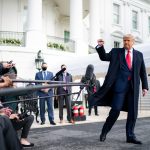The Los Angeles Times recently decided against endorsing Kamala Harris for president, a move that may seem strange coming from a liberal bastion in her home state of California. Some might interpret this as a moment of clarity for the paper, perhaps a sign that they’re ready to drift away from the far-left waters in which they usually swim. However, a deeper look reveals it might have more to do with the editorial puppeteer strings being pulled behind the scenes.
The owner of the LA Times, Patrick Soon-Shiong, has a daughter, Nika Soon-Shiong, who is a prominent figure within radical activist circles, particularly connected to the Democratic Socialists of America. Nika has earned a reputation for being an influential player in determining which candidates receive endorsements and which ones are shut out. Despite the paper’s assertions that her involvement is non-existent when it comes to such decisions, many suspect Nika’s sentiments about candidates guide the Times’ editorial choices. In this case, Kamala Harris appeared to have struck out by failing to adequately please the militant pro-Hamas cohort within her party.
It’s a classic case of political miscalculation. While Harris was busy trying to maintain support from both humanitarian advocates and the more radical factions within the party, she ended up alienating important voices, including those pulling strings within media establishments. Nika Soon-Shiong’s recent comments to a mainstream publication only underscore this: the family decided to abstain from endorsing anyone to send a message about their stance on serious global issues. Her purportedly standalone involvement makes for interesting theater, especially when past behavior shows her much more involved in political machinations.
We Now (Allegedly) Know Why Kamala Harris Lost the LA Times Endorsement https://t.co/4OP0qsBrfl
— (((TW))) (@Timgw2) October 29, 2024
Adding to the confusion, Patrick Soon-Shiong took the unusual step of rushing to clarify that his daughter has no say in the editorial decisions of the Times. This is reminiscent of a scene where a parent must explain to the neighborhood why their child is grounded. By stating that Nika speaks only as an individual, Soon-Shiong attempts to separate the Times from family influence. Yet, the reality remains – the impression of heavy-handed editorial control does little to reassure the beleaguered journalists at the Times, many of whom are likely already convinced they hold the moral high ground over their politically conservative counterparts.
This whole saga raises pertinent questions regarding the integrity of journalistic establishments amidst strong familial influence. Can a paper genuinely espouse independent journalism while its ownership structure entails this level of involvement? The frustration experienced by staffers at the LA Times mirrors similar discontent found in outlets across the nation, where media ownership and influence play a significant role in determining what news gets covered and how it is presented. Members of the editorial team have previously left due to disagreements with management, exposing a fracture that might be beyond repair.
As the political landscape becomes increasingly polarized, it becomes ever clearer that the objective of the media to remain neutral is often compromised, leaving journalists grappling with opposing views circling around their workplace. Until there is a true effort to diversify perspectives within such organizations, they risk losing credibility and relevance. Meanwhile, the LA Times continues to bow to the demands of an increasingly radical left while desperately trying to maintain its image as an independent news source. It appears that Kamala Harris is just another casualty in an ongoing battle for control over the narrative.




